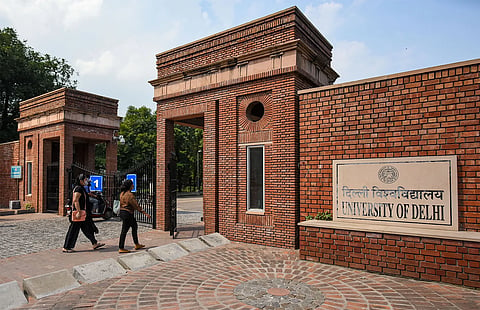

Delhi University (DU) has directed its colleges and departments to gather personal data of students from Jammu and Kashmir, sparking unease across the student community. The data sought includes Aadhaar numbers and current residential addresses in Delhi, and was to be submitted by April 29.
The request was issued via email from the Proctor’s Office, citing the need to maintain “accurate student records”.
The exercise, however, has raised serious privacy concerns, especially among Kashmiri students who fear potential misuse of their personal information. “We live with a sense of vulnerability. The collection of Aadhaar and addresses without a clear explanation only adds to our anxiety,” one student shared anonymously, according to The Times of India.
Proctor of DU, Rajni Abbi, confirmed to The Times of India that the directive followed a request from the Ministry of Home Affairs (MHA), reportedly based on intelligence inputs related to student safety.
She explained that the move came after reports emerged of Kashmiri students being harassed or assaulted in certain parts of the country, and that Delhi Police had sought the data.
Despite these explanations, the directive has triggered concerns over selective targeting and profiling. Other prominent universities in Delhi, including Jawaharlal Nehru University (JNU) and Jamia Millia Islamia (JMI), have not issued any such data collection order.
This isn’t the first instance of such profiling attempts. In 2022, Aligarh Muslim University (AMU) had issued a similar circular for Kashmiri students, which was eventually withdrawn following backlash. That same year, Christ College in Bengaluru was asked by police to share data on its Kashmiri students.
Nasir Khuehami, National Convenor of the Jammu and Kashmir Students' Association (JKSA), criticised the order as “a blatant breach of privacy and a direct violation of fundamental rights”, arguing that such information is already available through admission records. He urged the Union Home Minister to intervene and withdraw the directive.
With many students hesitant to speak publicly due to fears of reprisal, the controversy unfolds at a sensitive time — weeks after a terrorist attack in Pahalgam led to the death of 26 people, contributing to heightened tensions.
